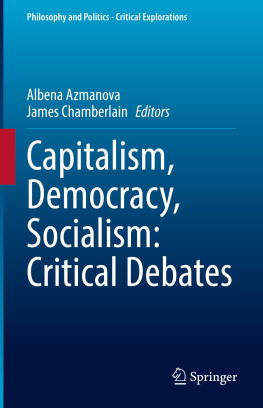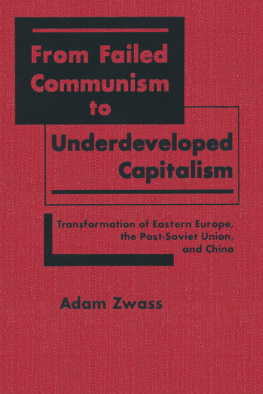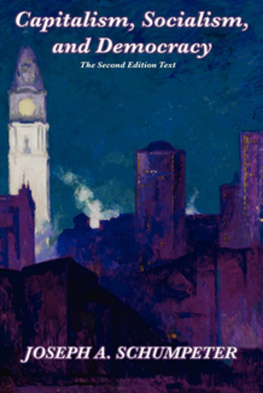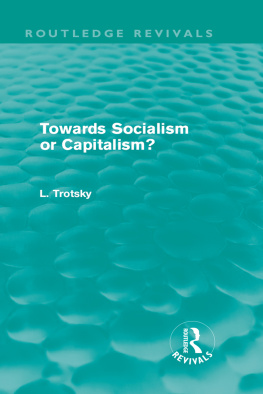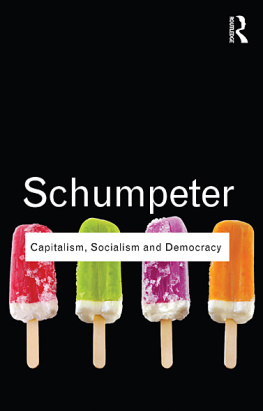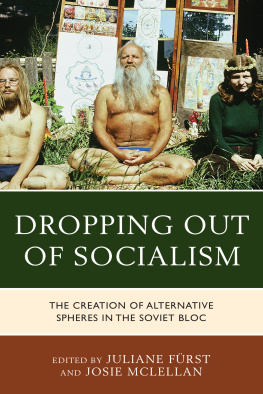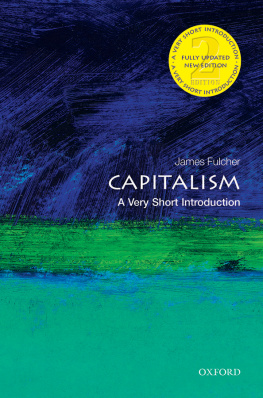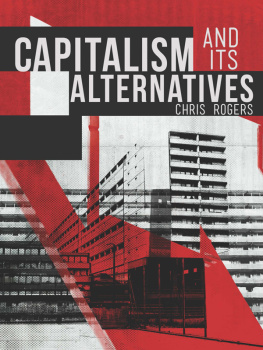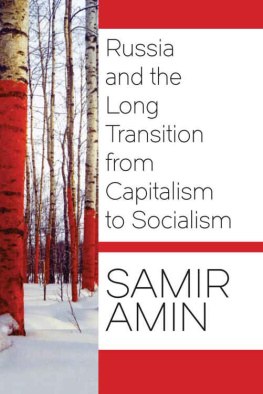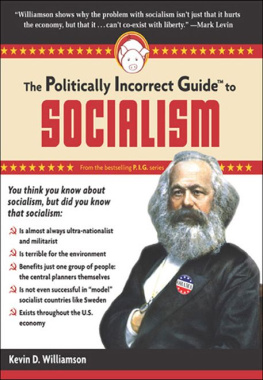Acknowledgements
This volume grew out of a conference held in 2015 to mark the centenary of the foundation of the School of Slavonic and East European Studies (SSEES), which since 1999 has been part of UCL. The conference was called Socialism, Capitalism and the Alternatives: Lessons from Russia and Eastern Europe.
Christopher J. Gerry (now Dean of St Antonys College, Oxford) conceived the idea for the conference, but after his departure to work in St Petersburg we became the main academic organisers. We are grateful for the support we received from the successive SSEES directors, Slavo Radoevi and Jan Kubik, who allocated generous finance. The conference could not have taken place without the unstinting efforts of Christine Fernandes, Sarah-Jane Gregori, Claudia Roland, Chloe Thomas, Lisa Walters, Maria Widdowson, Lesley Pitman and other SSEES staff members. Zena Howard organised unprecedented (for SSEES) press publicity for the event.
Alena Ledeneva and Peter Zusi, founders of the FRINGE Centre established by SSEES at the UCL Institute of Advanced Studies, saw the potential of the conference as the basis for a volume in the FRINGE Series and commissioned us to edit it. Since then Peter Zusi, in particular, has been a vital source of intellectual support. Anonymous reviewers provided valuable advice. Chris Penfold and Lara Speicher of UCL Press encouraged us in the project. We thank them all, but emphasise that any mistakes and deficiencies in this book are solely our own responsibility.
Elisabeth Schimpfssl is grateful to the Leverhulme Trust for enabling this research through the award of a Leverhulme Early Career Fellowship.
Finally, we wish to thank Sasha Zernova (who married Duncan while this volume was being prepared) for her support.

Semi-dependent capitalism
Russia
Ruslan Dzarasov
Modern Russian society can be defined as a semi-dependent form of capitalism. This means that on the one hand, it depends heavily on the core capitalist countries, while on the other, it aspires to play a regional hegemonic role. All contradictions in Russias economy, domestic and foreign policy stem from this intermediate position in the capitalist world-system.
Creeping Stalinism: The economic foundation of post-Sov iet society
The roots of the present-day model of capitalism in Russia lie in two major factors: (1) degeneration of the Soviet bureaucracy, and (2) the influence of global financialised capitalism.
Leon Trotsky in his insightful work The Revolution Betrayed demonstrated that contrary to Stalins proposition, Soviet society was by no means socialist. Actually, it was no more than a transitional formation which amounted merely to an attempt at constructing socialism. In the absence of a victorious world revolution, this society could well revert to capitalism. Trotsky also singled out the source of this degeneration, in the special position of the ruling bureaucracy: Privileges are worth little if they cannot be handed on to ones children by way of inheritance. Therefore, the privileged bureaucracy will sooner or later seek to take ownership of the enterprises it now manages, to turn them into private property.
Cambridge University Professor David Lane speaks of two main social groupings which aided in the transition of the Soviet system to capitalism: the administrative class, consisting of the Soviet bureaucracy, and the appropriating class, made up of the intelligentsia who had an interest in using markets to benefit from their professional knowledge. In the course of Gorbachevs Perestroika, these groupings tacitly formed a powerful pro-capitalist social bloc, which facilitated the demise of the Soviet system and its transition to capitalism.
A no less important factor shaping the new social system was the unprecedented Western influence on the process of transformation in the former Soviet republics. The defeat of the Soviet Union in the Cold War had compromised the socialist system of values, helping to create a situation in which Russian society uncritically adopted a bourgeois system of values which presupposed the broad introduction of private property. It was against the backdrop of its victory in the Cold War that ruling groups in the West, above all in the United States, were able to exert a decisive behind-the-scenes influence on the formation of the post-Soviet societies.
This formation was based on the principles of the notorious Washington Consensus, which underlay the policies pursued by Western (primarily American) financial organisations in their dealings with developing countries.
It follows from the above that implementation of the Russian reforms saw the desire of Soviet state functionaries to become private-property owners merging with the ambition of the Western ruling elite to impose their system of values on their historical adversary.
The foundations of the new social system were laid by privatisation. Its nature can be seen in the materials of an official report by the Accounting Chamber of the Russian Federation. An important dimension of this process was that privatisation further strengthened informal control over the assets of the new owners (see more on this below). This was only the continuation of informal control over state enterprises enjoyed by the Soviet bureaucracy from Stalins time.
Other reform policies had the same thrust. The liberalising of prices that is, their freeing from control by the state in fact facilitated transfer of labour income into private hands through price increases on the part of the new owners. To fight inflation, the authorities started the so-called financial stabilisation approach, reduced to restrictive monetary policy. The money stock was squeezed at the expense of real wages, pensions and social transfer payments. All this resulted in the enormous decline in aggregate demand, leading in turn to an equally great decrease in gross domestic product (GDP).
To better understand the nature of the post-Soviet social system, one should focus on the aims of the new capitalist elite in terms of the type of income that they extract from the assets under their control, which reflects a particular model of corporate governance established in modern Russia. It is highly authoritarian in nature, because it is based on a high rate of concentration of property rights. However, the real concentration of power at Russian enterprises is even greater than is assumed by the formal concentration of property rights. The most important feature of the Russian model of corporate governance is that it is largely based on informal control.
Dominant groups controlling Russian productive assets developed a sophisticated network of power relations, allowing them to influence both the internal and external environment of their enterprises. One should call the network of these predominantly informal institutions an infrastructure of control. Its external elements typically include a sophisticated chain of offshore firms disguising the real owners of enterprises; ties to corrupt state functionaries lobbying for their business interests; and protection provided by so-called roofs state law enforcement agencies, private security firms and criminal structures. The main aim of the external elements of the infrastructure of control is to protect the property rights of the established dominant groups against encroachments by hostile groups. The internal elements of the infrastructure include top-down management with a highly centralised decision-making process; overgrown departments of monitoring and control; and internal security services. These institutions were designed to suppress worker protests and opportunist actions by hired employees. The whole infrastructure of control ensures reliable control on the part of owners over the financial flows of their enterprises. It follows from the above that the highly authoritarian character of Russian big business assumes extra-economic compulsion.
Next page

